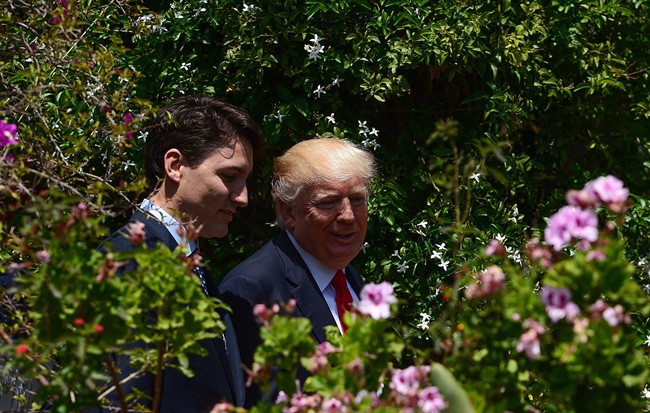MONTREAL – The Canadian government needs to shave a bit off the corporate tax rate and provide financial incentives for investments in artificial intelligence and robotics following U.S. tax reforms, says a leading tax expert.

“I think there’s room for tax reform,” said Jack Mintz, a professor at the University of Calgary.
He said the combined Canadian corporate rate should drop two percentage points to 25 per cent to protect the government’s tax base while the government also gives a signal encouraging more investment.
The U.S. cut its corporate tax rate to 21 per cent from 35 per cent, allowed firms to immediately write off investments in equipment and removed taxation on dividends.
“We’re going to have to think a lot more about how we can keep up, otherwise our businesses won’t be competitive relative to the U.S.,” he said in an interview.
TD deputy chief economist Derek Burleton said the tax reform bill has considerably eroded Canada’s favourable corporate taxation position, giving the U.S. an edge.
However, he added that the temporary nature of key elements of the tax reforms and uncertainty over future rates could offset the push to deploy investments in the U.S.
WATCH: Federal budget will be tabled February 27: Bill Morneau

He expects the result will be a longer-term “bleed” in capital from Canada rather than a sudden exodus of investment.

Get weekly money news
“A greater difficulty in attracting and retaining investment in Canada would weigh on the country’s longer-term growth prospects,” he wrote in a report.
The changes are also increasing pressure on Canadian governments to take action. The federal government will unveil its budget Feb. 27.
Burleton said a “tit-for-tat” tax cut isn’t necessary since taxes are only one factor in competitiveness. Instead, he said Canada should focus on tax reform over cuts. That includes eliminating inefficient tax credits and outdated regulations.
READ MORE: If you thought NAFTA pullout would be bad for Canada, check out the tax reforms
A CIBC World Markets report said the U.S. tax changes will make Canada less competitive and end the use of tax inversions.
“Don’t expect any more inversions,” wrote Ian de Verteuil, CIBC’s managing director.
Inversions have been used by companies like Restaurant Brands International Inc. to buy Tim Hortons and Valeant Pharmaceuticals International, Inc. to acquire Biovail Corporation.
An inversions is what results when a foreign company merges with a U.S. or domestic firm, creating a new parent company based in another country with lower tax rates.
The U.S. was the only G7 country that taxed companies regardless where they were located in the world. That encouraged many to set up in Ireland or Canada where they would get a credit for taxes paid at a lower rate than in the U.S.
U.S. changes approved before Christmas adopted a “territorial approach” that applies a tax of 15.5 per cent, similar to Ireland’s rate.
Mintz said the major reason for inversions is no longer relevant because dividends will be tax exempt and the overall U.S. corporate rate has been slashed.
“There’s a lot of companies now that are evaluating about investing more in the U.S. and will some of the inverted companies decide to come home? That’s possible.”
Roy Berg, an American tax specialist at Moodys Gartner Tax Law LLP, said the tax reforms remove the incentive to establish a Canadian corporate parent company.
WATCH: Prime Minister Trudeau says he’s committed to tax fairness

“It’s all of a sudden very, very competitive for that parked capital,” he said in an interview.
Russell Crawford, head of KPMG’s corporate tax practice in Canada, said his firm is busy these days helping companies to understand and take advantage of the U.S. tax reforms.
But he doesn’t believe the U.S. tax changes, which lower federal rates to just below Canada’s rate, will be the determining factor for corporate decisions.
“I think it’s always going to be business issues, not tax issues that are going to drive where a company is headquartered and where they’re doing business,” said Crawford.












Comments